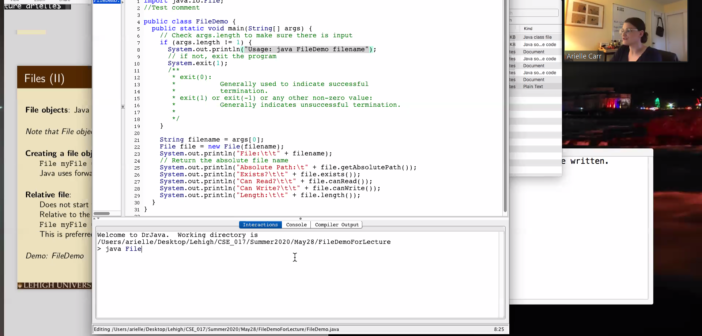After experiencing half a semester of online classes due to COVID-19, many students have opted to continue their online education throughout the summer after the cancellation of summer internships and programs.
Steve Wilson, the assistant provost for academic affairs, said in an email that the enrollment for summer classes between 2015 and 2019 has decreased every year except for one. Summer enrollment the past five years had ranged between 3,680 in 2019 and 4,054 in 2015.
The number of students registered for summer classes in 2020 is similar to the number of students who registered for summer classes in 2019, said Amy White, associate director of media relations. While the total number of students enrolled for summer 2020 is not yet finalized, White said she believes there will be more registrations to come.
“At this time of year, enrollment numbers also tend to move due to factors such as adds, drops, and grades coming in this week,” she said via email.
All summer courses will be conducted virtually.
For some students, like Ami Yoshimura, ‘23, the biggest factor in whether or not to take summer classes was the cost.
Yoshimura’s original summer plan was to be in the Philippines as a part of Lehigh’s Global Social Impact Fellowship Program. After its cancellation, however, he then decided to sign up for the second summer session to get ahead in his courses.
“Although [summer]is significantly cheaper than the fall and spring, for someone who has financial aid, it is better for me to take classes then,” he said.
Kevin Gu, ‘22, had an internship through Lehigh’s Startup Academy, but he decided to balance both a job and classes, as they were both moved online. He said it was an easy decision to do so, as he is now able to get credits from home.
“Taking summer classes online helped me a lot, since it is online,” Gu said. “I hope Lehigh can put all classes online — it’ll be helpful. I know people from the West Coast taking classes, so a significant amount of my friends are taking classes compared to last year since their internships or their projects got canceled.”
FJ Olugbodi, ‘23, already planned on taking classes over the summer to get ahead in coursework.
Both Olugbodi and Gu agreed the transition from the spring semester to summer classes was easy — because they were now accustomed to learning online — and had figured out efficient ways to do their work. However, both said they appreciated the time spent learning from live lectures online, which was not always the case in the spring.
“It was a little annoying when some professors didn’t do live classes, (because) you’d have questions and no one to ask them to,” Olugbodi said. “Some students learn by asking questions as they’re learning, not saving them at the end. That aspect of learning, or the rate you could learn, is different.”
Yoshimura said there was a trade-off between being able to do more while staying at home and accomplishing his work remotely, and between having a less engaging opportunity.
“It’s almost nice that I get to take economics from home and maybe do something else with my time,” he said. “If I were on campus, I couldn’t. It gives me the opportunity to be more flexible with my time.”






Comment policy
Comments posted to The Brown and White website are reviewed by a moderator before being approved. Incendiary speech or harassing language, including comments targeted at individuals, may be deemed unacceptable and not published. Spam and other soliciting will also be declined.
The Brown and White also reserves the right to not publish entirely anonymous comments.